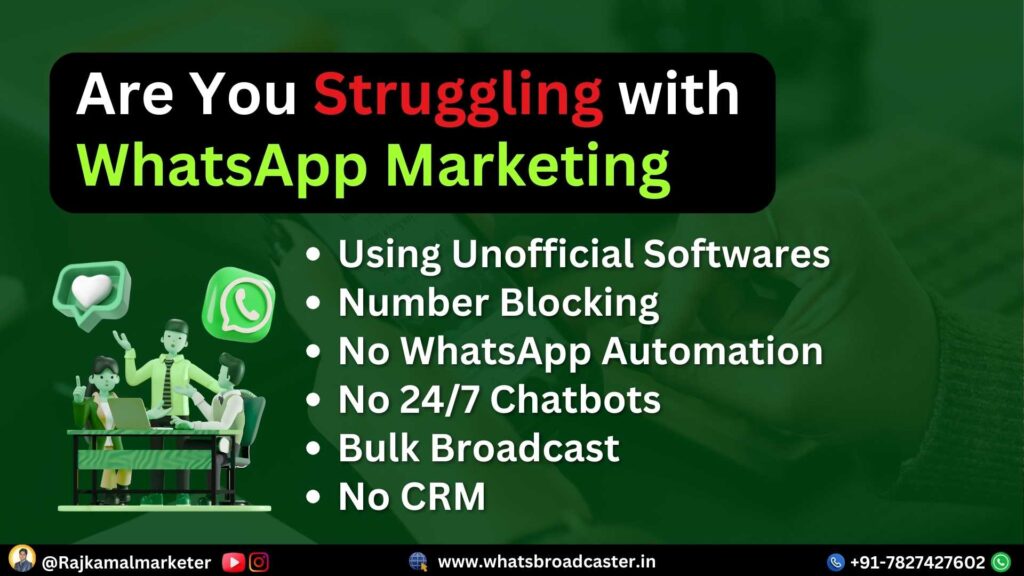
In today’s digital age, WhatsApp has emerged as a powerful communication tool for businesses. However, many users often find themselves navigating the complexities of bulk messaging on the platform. This guide will explore how WhatsApp bulk messaging works, the different methods available, and best practices to avoid potential pitfalls such as getting banned.
What is WhatsApp Bulk Messaging?
WhatsApp bulk messaging allows businesses to send messages to a large number of users simultaneously. This feature is particularly useful for marketing campaigns, updates, and customer service notifications. However, using this feature incorrectly could result in account bans. Understanding the nuances of WhatsApp’s policies is crucial.
Why Use WhatsApp Bulk Messaging?
The growing popularity of WhatsApp presents businesses with an opportunity to reach their audience effectively. Some of the reasons businesses prefer WhatsApp bulk messaging include:
- Wide Reach: With billions of active users, WhatsApp allows businesses to connect with many potential customers.
- Quick Delivery: Messages are delivered instantly, making it effective for time-sensitive communications.
- High Engagement: WhatsApp boasts high open and engagement rates compared to email or SMS.
Methods of WhatsApp Bulk Messaging
There are several methods to implement bulk messaging, each having its own benefits and drawbacks.
1. Official WhatsApp API
The Official WhatsApp API is designed for medium to large businesses, enabling them to send messages at scale without violating WhatsApp’s terms. However, there are certain requirements:
- Businesses must be verified on the Meta Business Manager.
- There are costs associated with using the API which include monthly subscriptions and per-message fees.
Cost Overview:
- In India, the cost for sending utility messages through the API can be around ₹0.72 per message.
- For authentication purposes, the cost remains similar.
- Overall, sending 1 lakh messages could incur significant costs, making it viable primarily for well-funded or larger operations.

2. Unofficial Tools for WhatsApp Bulk Messaging
While some may resort to unofficial tools for bulk messaging, it’s essential to understand the risks involved. These can be categorized into:
- Script-Based Tools: These tools allow businesses to automate sending messages but often require the user to keep their device on.
- Cloud-Based Tools: These operate in the cloud, allowing messages to be sent without the need for the user’s device to be active.
Key Differences between Official and Unofficial Methods
| Method | Cost | Reliability | Risk of Ban |
|---|---|---|---|
| Official API | Higher | High | Low |
| Script-Based Tools | Lower | Moderate | High |
| Cloud-Based Tools | Variable | Moderate | Moderate |
Understanding Virtual Numbers
Virtual numbers play a vital role in the bulk messaging strategy, allowing businesses to send messages without using their corporate number. Here are their characteristics:
- No Verification Required: Virtual numbers do not need strict verification processes as regular numbers do.
- One-Way Messaging: Incoming calls to these numbers are generally not possible; they mainly facilitate outbound communications.
- Use for OTP Verification: Virtual numbers can be useful for receiving verification codes.
How to Avoid Getting Banned while WhatsApp Bulk Messaging
When sending bulk messages, the risk of being banned looms large. To mitigate this, businesses should adhere to these best practices:
- Engage Responsibly: Begin with a smaller number of messages. Increment gradually and avoid sending large bursts at once.
- Send Relevant Content: Ensure the content sent is relevant to the audience. Irrelevant or spammy messages lead to user reports and subsequent bans.
- Monitor Engagement: Track how users interact with the messages. High rates of disinterest signal potential issues and should prompt a reevaluation of the strategy.
Recovery of Banned Accounts
If your WhatsApp account gets banned, here’s how you can attempt recovery:
- Submit an Appeal: Follow the process to submit an unban request through WhatsApp’s support.
- Be Patient: Recovery doesn’t happen immediately; it may take a week or longer.
- Evaluate Practices: Analyze what led to the ban and adjust your messaging strategy accordingly.
Conclusion
WhatsApp bulk messaging can be a boon for businesses seeking to connect with customers effectively. However, using this feature responsibly is paramount. Whether you choose the official API or unofficial tools, understanding your approach and being mindful of WhatsApp’s guidelines will help protect your account from bans. Successful bulk messaging hinges on delivering relevant content to the right audience while maintaining compliance with WhatsApp’s policies.
For businesses looking to capitalize on WhatsApp for marketing without the risk of account suspension, it’s essential to develop a strategy that emphasizes quality over quantity in messaging. Engaging users in a meaningful way can enhance your brand reputation and foster long-term customer relationships.
Ready to dive deeper into WhatsApp bulk messaging? Share your thoughts and experiences in the comments below!
